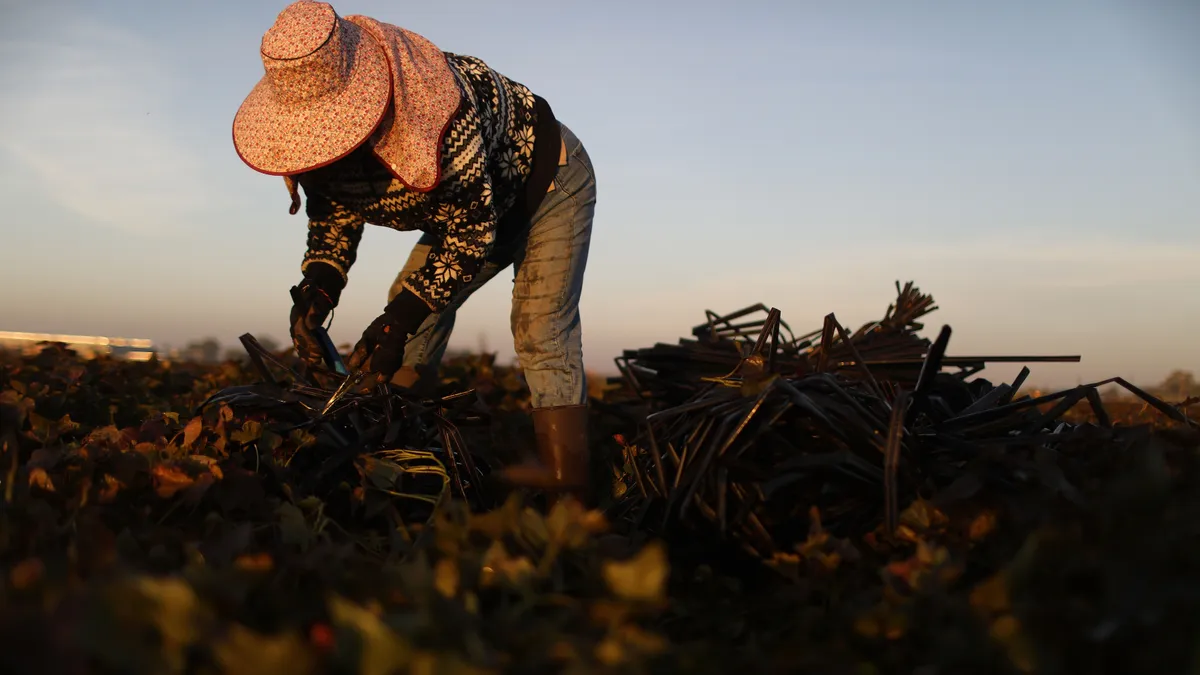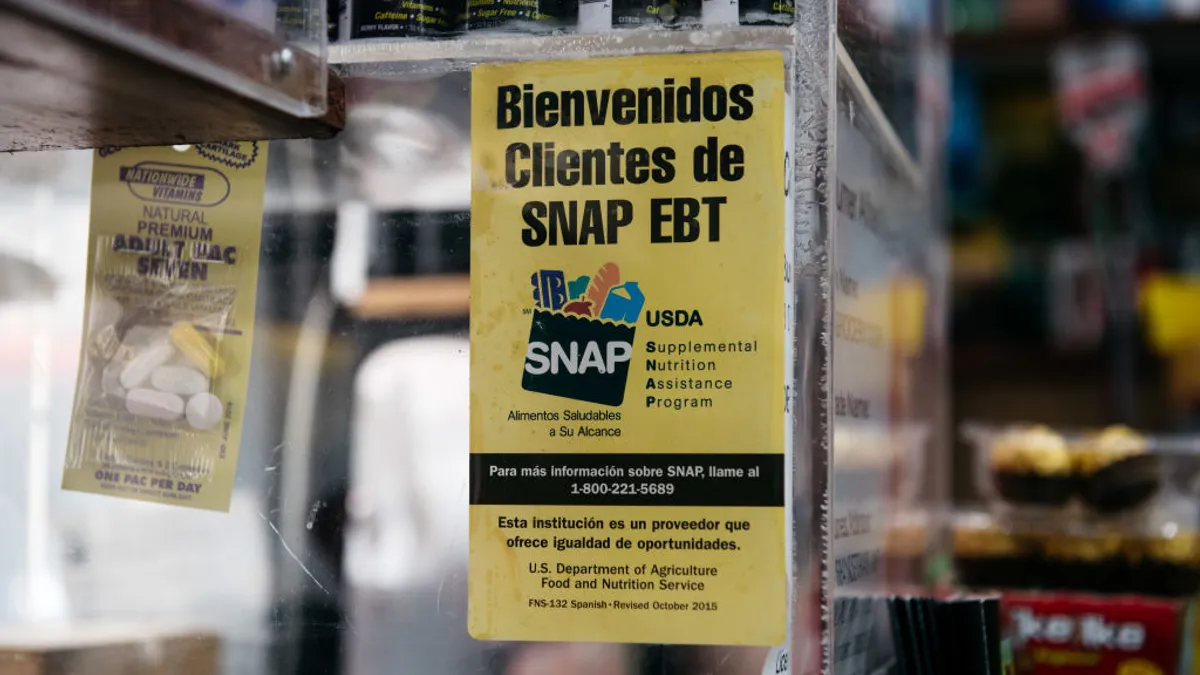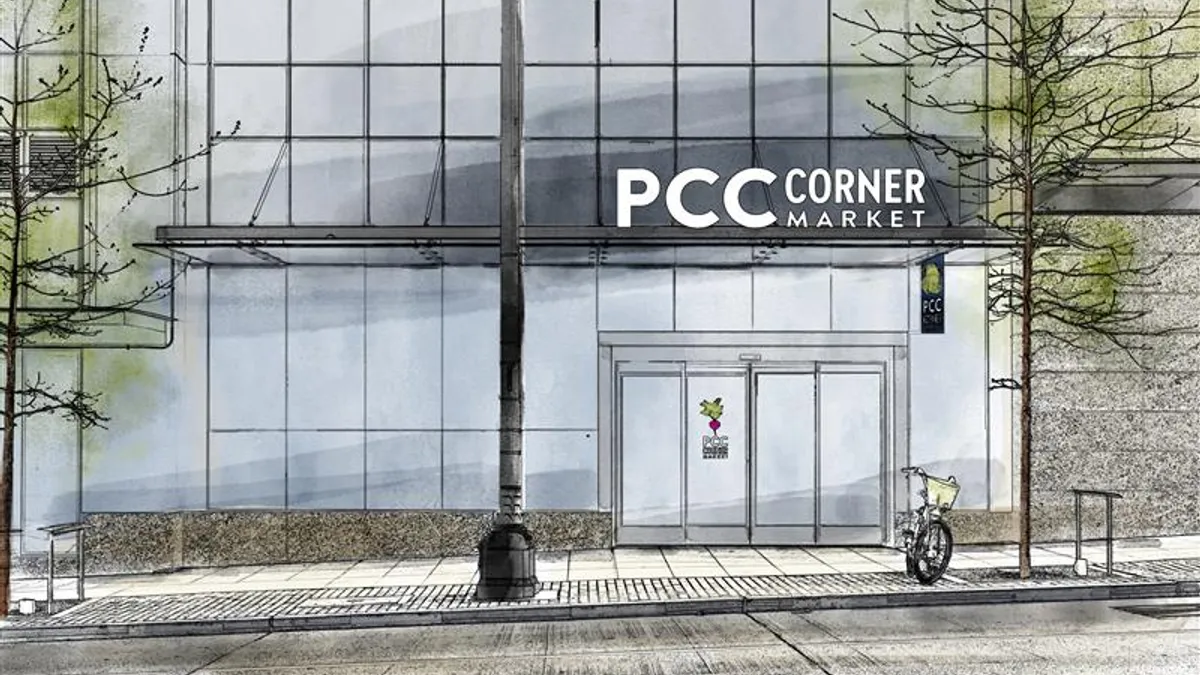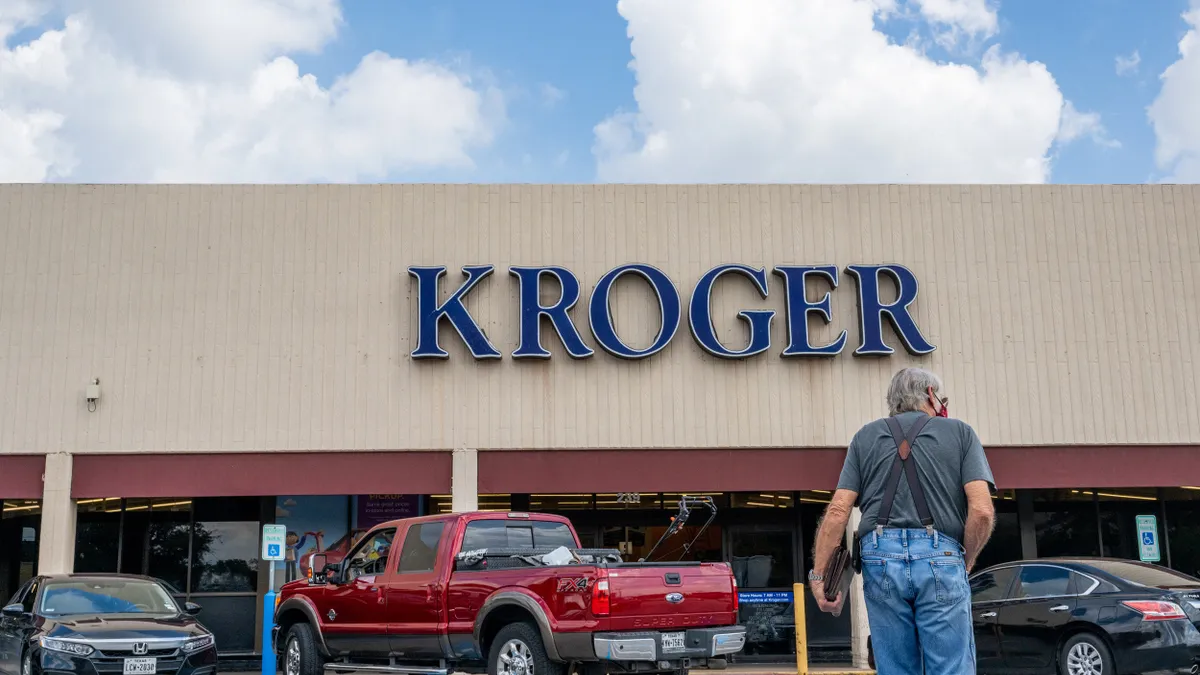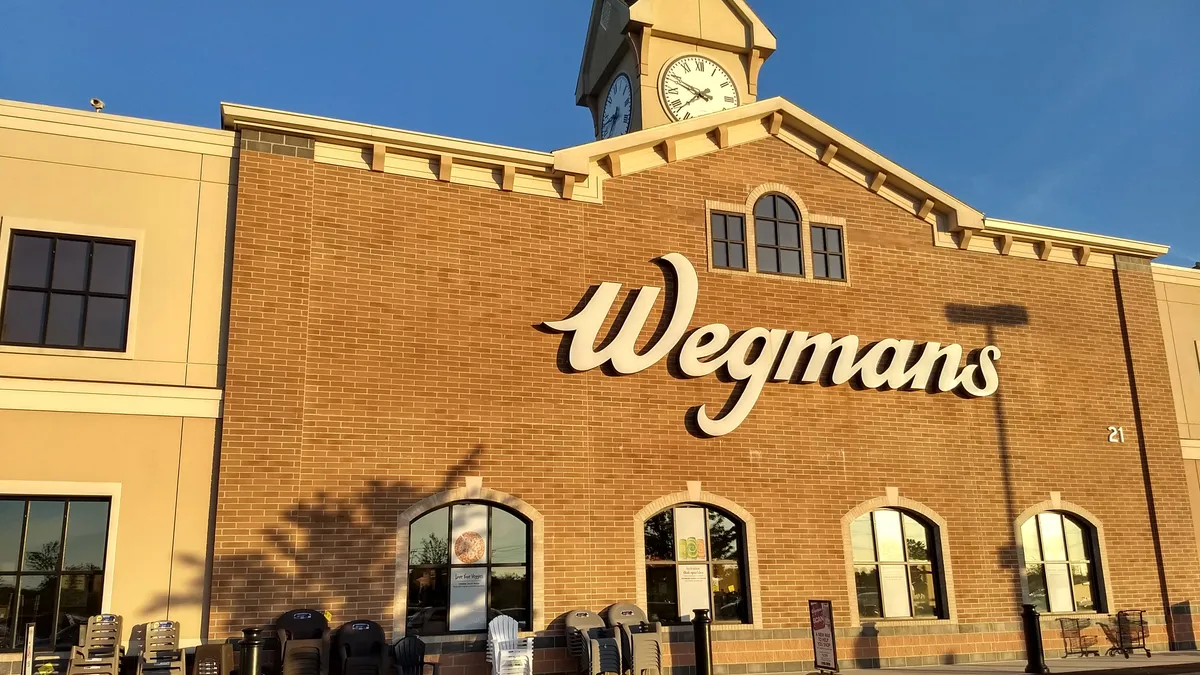The Consumer Goods Forum was created in 2009 to bring together manufacturers and retailers around the globe to combat issues affecting people and the planet — including deforestation, food waste, human rights and employee well-being.
Today, the CEO-led organization has pledged to move faster to enact change through its nearly 400 members, which include Coca-Cola, Nestlé and Walmart. The goal of the CGF is to tap into the diverse nature of its membership base — including the different pressures, priorities and regional factors facing each company — to identify the best strategies and to benefit from the massive scale created by the organization.
Last year, the CGF named Frans Muller, the president and CEO of grocery giant Ahold Delhaize, and Dirk Van de Put, the head of Oreo and Ritz manufacturer Mondelēz International, as its newest co-chairs through June 2025. The executives recently sat down with sister site Food Dive to discuss the role of the CGF, the responsibility consumer goods companies have in tackling issues affecting the planet and challenges that complicate efforts by the group to follow through on its mission.
This interview has been edited for brevity and clarity.
FOOD DIVE: What do companies gain from taking an active role in issues such as deforestation, plastic waste or human rights?
DIRK VAN DE PUT: The main driver is the consumer. The consumer is more and more interested in this. And as you go to the younger generations, they are more interested in health. They're more interested in sustainability. They want to make decisions based on what the company stands for.
There are also some countries where there is taxation and regulation coming related to some of the subjects discussed here at CGF, like the new [Regulation on Deforestation Free Products in the EU] where companies have to prove that their supply chain is deforestation-free.
On top of this, I think investors are increasingly wanting to invest in companies that do the right thing. So if I look at that full spectrum, I can probably sell more and be seen as a better company by [appropriately managing] taxation and regulation, and my investors are happy. That is a pretty strong incentive to work on these subjects.
FRANS MULLER: It’s not so much charity. It's also about strengthening our own individual businesses. ... How can we work together because this is super complex? We all have quite the ambitions as individual companies so how can we do this in a more efficient way?
Scope 3 emissions — those not produced by the company itself, such as consumers disposing of food products — have been a challenge for some businesses because they don’t have as much control over them. How do companies deal with Scope 3?
MULLER: I think for all companies, Scope 1 and 2, within your own operations, are of course more overseeable — which makes it easier to assess what needs to be done. But we know that Scope 3 is super necessary to complement the whole thing, to have an impact on the total value chain.
And that's exactly why this forum is so important because I will partner up with other retailers. I will partner up with manufacturing partners. We've had good discussions already, bringing together companies across different geographies, and with different perspectives, from various different categories
So that's why we said let's measure where we are and let's make sure that we have good progress. And every company will have its own journey, some are a little bit further than others, but to talk about these kinds of things, about uncertainties and what we don't know yet, that is already very revealing and very, very helpful. And it's not only about the big companies, but also midsize, smaller domestic companies there. If we can help each other to get there then you can develop the critical mass.
With members of different sizes, goals and strategies on how to make progress when it comes to people and the planet, how do you get companies to work together?
VAN DE PUT: In some of these areas, the solution still needs to be defined. If you talk about Scope 3, there's a lot of work that needs to be done to understand Scope 3 better, to start talking about deforestation, how to get a deforestation-free supply chain. The coalition works to collectively advance these discussions. It’s sort of like a think tank and they work on what is the solution, what's the theory of change that we can jointly come up with. We've got some of the best experts in the different companies working together to think this through. What do we need to do on health and wellness and in human rights and so on?
Particularly for mid- and small-size companies that collaboration is very helpful, because we sort of show the way and as everybody does it, then you start to get real progress.
MULLER: Another good thing is that in most of those initiatives, to have a better performance on the coalition, in most of the cases you also get a better business. If you can avoid food waste, if you can work on your plastic and recycling, if you can align between industries and retailers on specs on packaging, and you can do this in a harmonized way, that will also save a lot of cost at the same time apart from an environmental benefit.
In recent years, more companies have chosen to work together through partnerships or a coalition like yours. Why do you think that is the case?
MULLER: You see the collaborations going up, you see that [CGF] members are more committed. You see the people come to conclusions. You see the people come to the next generation of solutions. We share all the solutions with our members so everyone has access to these kinds of things. And a lot of companies learn a lot.
At the most recent Consumer Goods Forum in June, we talked together with people about what's working, what's not working yet and how can we learn from this. You're very much together on this because we enrich it together with your product, your assortment, your categories and your retailers and you can make a big impact if you coordinate here. There's an even higher level of collaboration and there's an even higher ambition to make things work now because a few things are not in good shape, like human rights.
VAN DE PUT: If you start to drill down in some of the areas we work in, you start to realize that in most of these areas, not one company can drive a big change.
If you start to go deeper, you can see why it makes sense to collaborate. Also on the solution side, I would say that with some of the thinking, like that around Scope 3 and around how to tackle plastic waste, we really need the best minds in the industry to get together and work towards a solution.
Issues such as climate change and social inequities have received a noticeable increase in attention recently. Have they impacted the urgency with which you or your members are acting?
MULLER: I think we all understand that for certain areas, we have to accelerate and that's why obviously acceleration areas are meant to be where everybody can chip in and can participate.
We are pretty clear now that for the planet, climate change does not wait for us, unfortunately. We have to speed up and there's more urgency now to get those metrics right and this we can do ourselves. We don’t have to wait for governments, this is an industry topic. We take more of that destiny in our own hands to make that impact.
Has the food industry moved quickly enough to respond to some of the issues we are seeing globally?
VAN DE PUT: I think certainly there's an acceleration taking place, things getting clearer on what the solutions are. And you can see some big companies are leading the way, taking some bigger steps. So yes, I feel that the industry is clearly declaring that they want to solve some of these problems. These are not easy-to-solve problems, and I think sometimes there is this belief that we can just snap our fingers and it's done.
This is going to take years to solve and a concerted effort with many companies around the world. So it is not an easy path. But if I look at the attendance here with companies that are becoming members of the organization, the type of work that's taking place, I would say there is a very serious approach to things and there is a sense of urgency that we need to move.
What are the biggest challenges for your members when it comes to making meaningful progress?
VAN DE PUT: It's not necessarily the agreements between companies on the financials. I would say most companies are understanding that it will take a certain financial effort, but as Frans was explaining a little bit before,if you approach sustainability in the right way, you will see multiple benefits; for example, with food waste, tackling it isn't just the right thing to do for businesses. It also means reduced CO2 and less cost. It makes sense to do it, you just need to put forth the effort.
So I would say that the biggest issue, at least, and I'm talking more for us as a company, but I think it's the same for everybody, is to do all these things, while at the same time being faced with a difficult economic climate. It's how do I push all these subjects forward with the sometimes limited means that we have as a company. So as a consequence, I think people are trying to prioritize.



